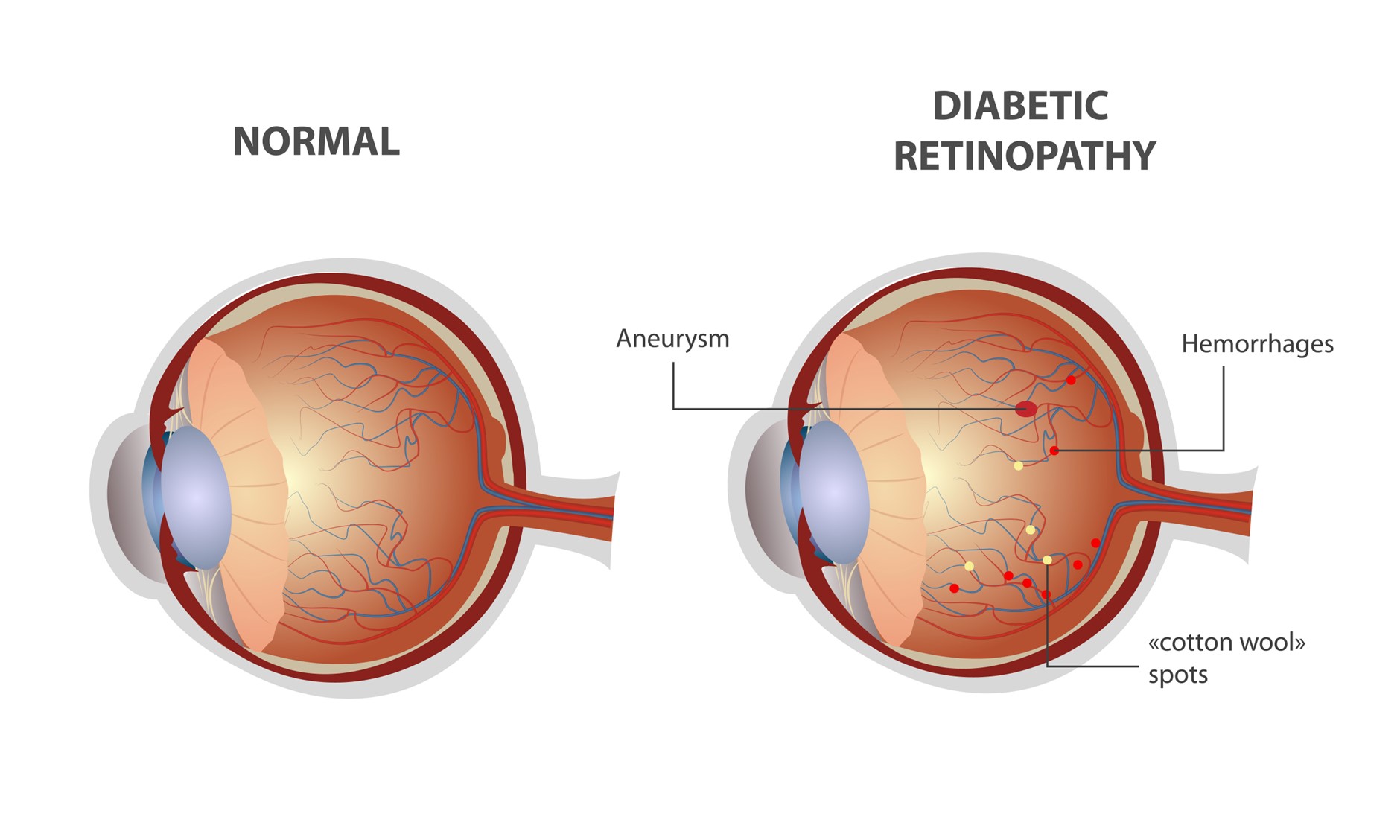Diabetic retinopathy is caused by long-term high blood sugar levels leading to progressive damage of the eye (retina). It can sometimes cause blindness if left undiagnosed and untreated.
Diabetic retinopathy is a sight-threatening complication of diabetes characterized by too much glucose levels in the blood, causing damage to the small blood vessels of the body, including the retina.
Diabetic retinopathy is a condition in which these small blood vessels leak blood and other fluids, causing the retina to swell and resulting in cloudy or blurred vision.
Patients with diabetes with proper control over their blood sugar levels can slow the onset and progression of the disease.
Symptoms of Diabetic Retinopathy (Diabetic Eye Disease)
• Visible Spots or Floaters
• Blurred or Cloudy Vision
• A Dark or Empty Spot at the Center of Your Vision
• Vision Problems, Especially at Night
However, during the early stages of the condition, there are no specific symptoms.
Are You at a Risk for Diabetic Retinopathy?
Diabetic retinopathy is a result of uncontrolled and long-term diabetes.
Other Factors Include-
- Medical conditions (high blood pressure and high cholesterol)
- Pregnancy (gestational diabetes)
- Family History
However, you can lower the risk of developing diabetic retinopathy by controlling your diabetes from time to time.
Diagnostic Criteria for Diabetic Retinopathy
- Diabetic History
- Comprehensive Eye Examination (Evaluating the retina and macula)
- Patient History and other general health concerns affecting vision
- Visual acuity (To determine how much central vision has been affected)
- Refraction (To determine if new glasses are required)
- Evaluation of the ocular structures and retina through a dilated pupil.
- Measurement of the pressure in the eyes
Other Tests:
- Retinal tomography (To check the retina)
- Fluorescein angiography (To evaluate abnormal blood vessel growth)
Can Diabetic Retinopathy Go Away?
Proper treatment can help prevent vision loss from Diabetic Retinopathy.
Medical control
- Control your diabetes and blood pressure
- Take medications as prescribed by the doctor
Medications
Injecting medications into the eye can help reduce swelling of the macula and improve vision.
Surgery
Laser surgery
- To seal off leaking blood vessels, which reduces swelling of the retina
- To shrink blood vessels and prevent them from growing again
Vitrectomy to treat problems of the eye’s retina and vitreous.
Consult your ophthalmologist to check for the best treatment option that suits you.
5 Ways to Prevent Vision Loss from Diabetic Retinopathy
- Control Your Blood Sugar, Blood Pressure, and Cholesterol Levels
- Consult an Ophthalmologist Regularly
- Quit Smoking
- Follow a Proper Diet and Exercise Plan
- Observe for any Vision Changes in One or Both Eyes
The earlier the diagnosis, the better the prognosis!


